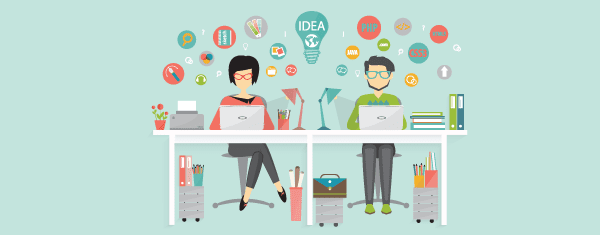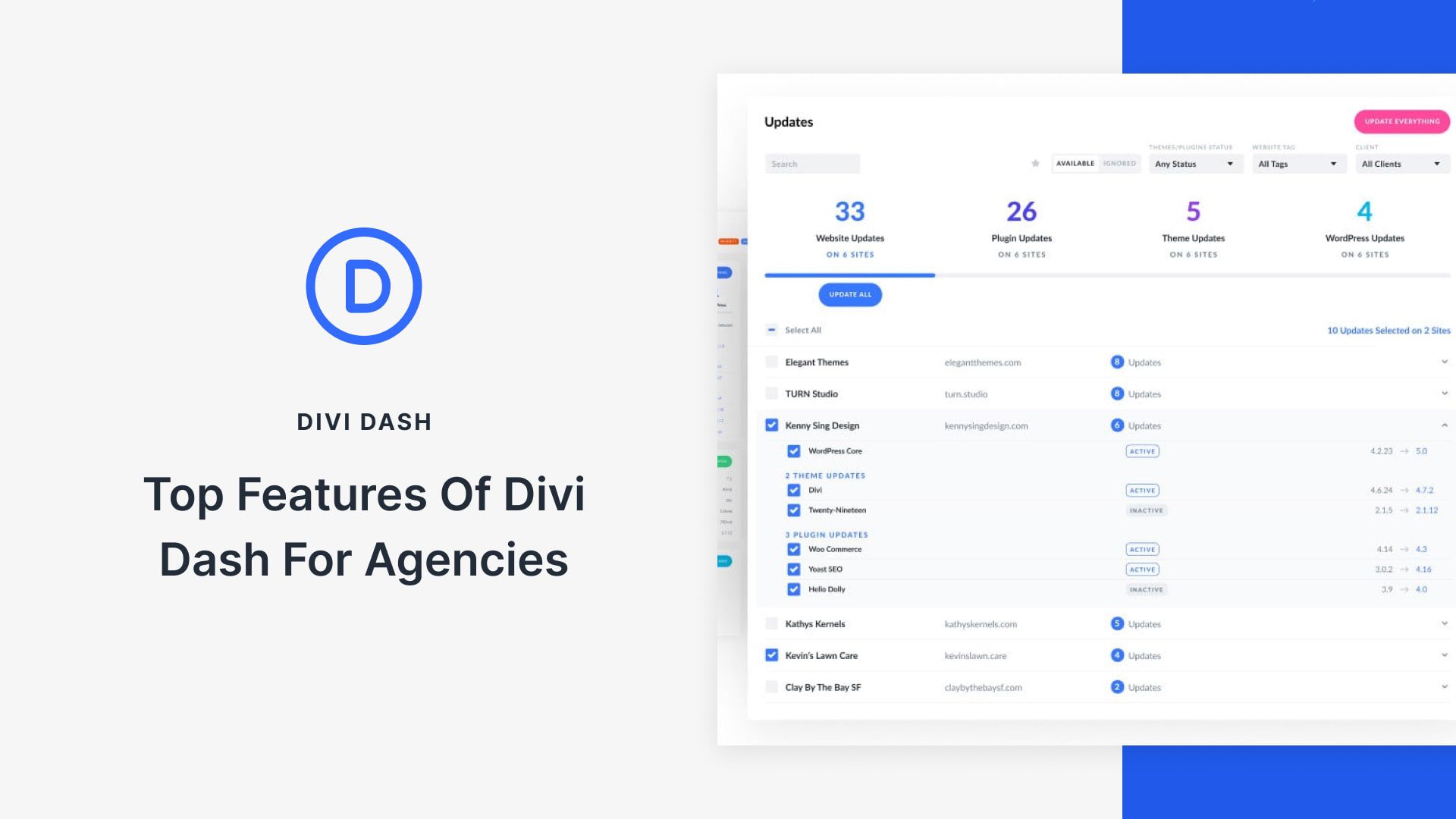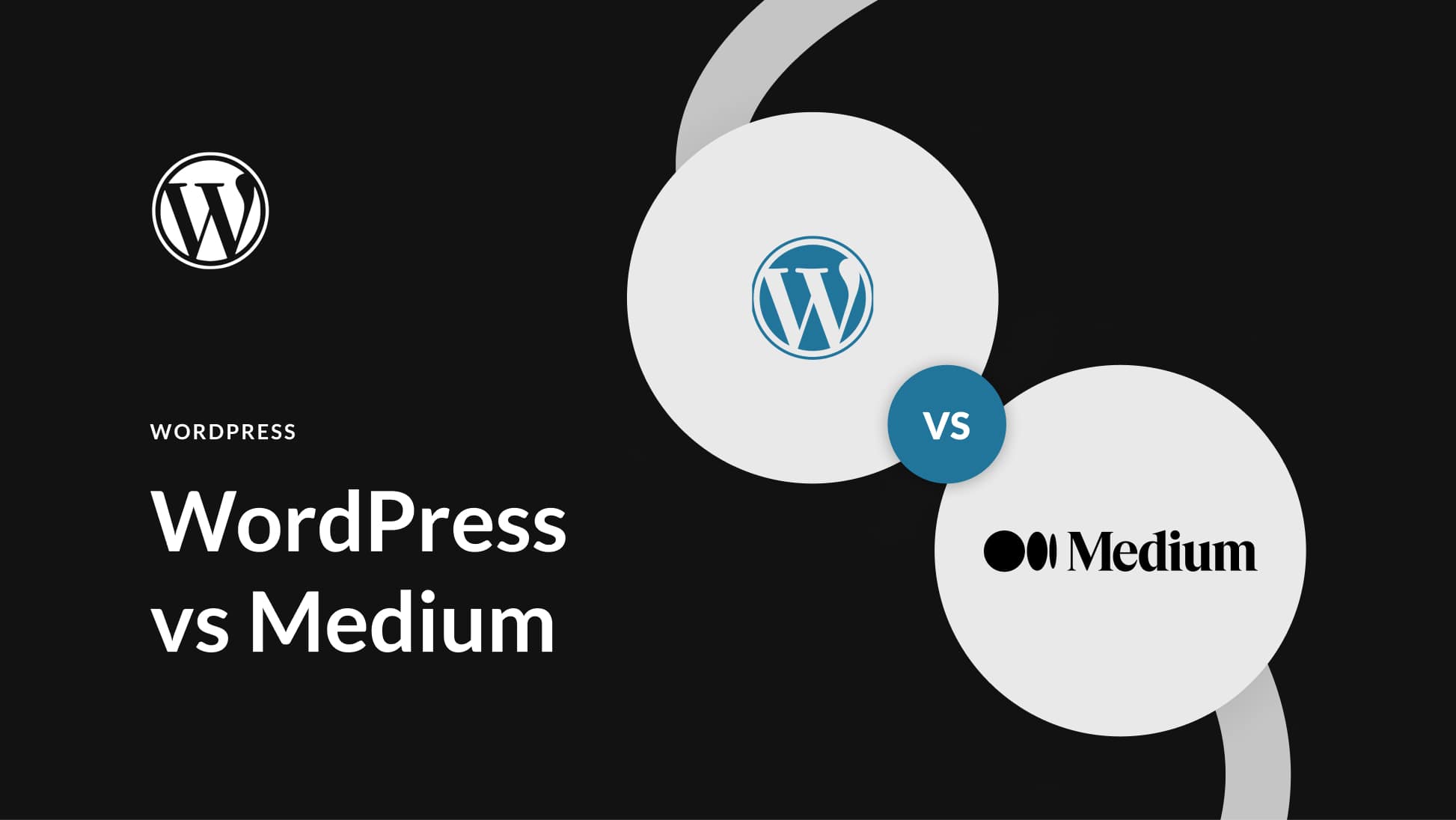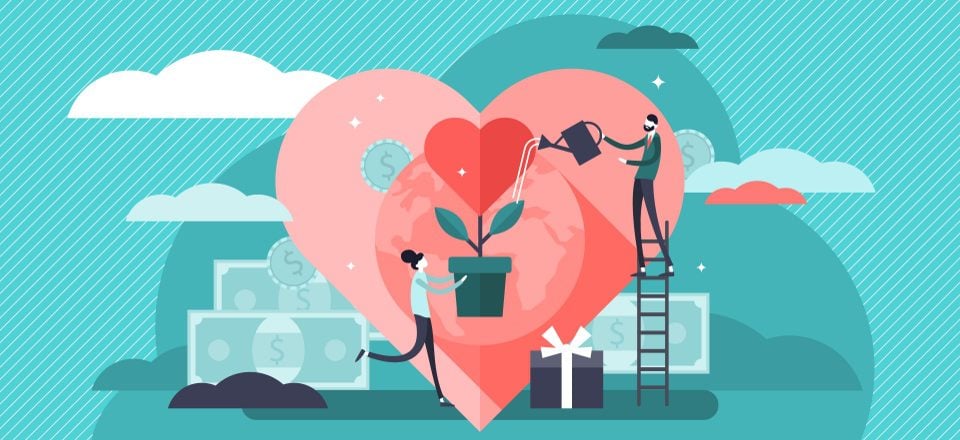Originally this post was not going to include an interview. I had every intention of doing thorough research on the topic of “what it takes to be a great web designer” and then provide some clear guidelines and best practices that anyone can follow.
However, as I began to do the research what I found was that there are many articles out there with general advice for designers and I didn’t feel that another one would add unique value to the Elegant Themes blog. So instead I decided to reach out to one of the best designers I know and see if he would be willing to weigh in on the topic and provide us with his perspective.
Who is Fabio Sasso?
Fabio Sasso is a Brazilian designer now based out of San Fancisco, California where he works as a senior designer at Google. I met him around 2009 or 2010 when I started blogging. At the time he split his time between his design company ZEE and his popular design blog, Abduzeedo, where he was kind enough to let me participate for a while.
In my limited capacity I came to know Fabio as a charmingly self deprecating guy with a massive amount of design talent. Which is how he also comes across on his blog, through its huge collection of low key but impressive library of design tutorials.
When I think of his story, I think of the perfect person to talk to about this topic because he’s made a sort of “rags to riches” journey. He started out as a normal freelancer designer, to a famous design blogger, and then to a senior design position at one of the biggest and most influential companies in the world.
It’s an inspiring story and a good one for other aspiring designers to be aware of. I think it gives good context to the conversation I have with him below too.
Interview with Fabio Sasso
The following interview was conducted via email. Because of time and scheduling constraints, there wasn’t time for a big back and forth, so I tried to ask every relevant question I could think of right up front. Fabio was a great sport about diving into a lengthy process and I think he’s given us some good pieces of advice/wisdom to learn from and discuss.
Q: Currently you are a senior designer at Google and the founder of one of the biggest web design blogs in the world. I imagine that when the average web designer or someone who wants to become a web designer sees a byline like that it feels completely unattainable. Did you imagine when you began designing that you would be where you are today?
I never imagined that things would turn out like that. My goal was always to focus on improving my skills and learning as much as I can. I think once you focus on simple, small and achievable goals for the short term, you end up harvesting big results in the long term.
Q: When (and where) did you begin designing?
It is hard to pin point exactly when I began designing. I’ve always been into the creative side of things, like trying to build things with paper, or drawing even though my skills weren’t that great. I am from Brazil and back when I grew up we didn’t have access to much technology till the mid 90s, that was when I got my computer and then access to the internet. I attribute that to my real beginning.
Q: Was designing an outgrowth of a general passion for art and creativity or was it something you chose to pursue for other reasons?
To be honest with you I was never too much into art, but I always like to build things, like it was more about the passion of translating ideas into something that I could use or that people understood.
Q: What was your very first web design job?
My first paid job was for a tech company back in 1998 in Brazil. My brother that is a software engineer had a co-worker that was opening his own company and needed a designer. My brother new I love doing that and had just got to college for that and told him about me. I landed the job with no experience but I loved the challenge of designing interfaces.
Q: How did it go?
It was a novelty experience, I was learning by doing it. It sounds crazy but now that I look back I can see that it wasn’t just me, everybody in the team was on the same boat and I think that’s why it worked. There wasn’t any ego in our way and it was something like when you cannot move back you can only move forward.
Q: What was the biggest challenge you faced in your early years as a designer?
For me it was always the access to information. Design books in Brazil were pretty difficult to find. Besides that they were extremely expensive because they were always imported. To make things worse they were in english and my english was pretty bad. I think these constraints enticed my curiosity and helped me find different ways to overcome them.
Q: How did you overcome it?
Well, I used to go some bookshops and spend the hours looking at books and magazines. Then I was always trying to memorize the things I liked that inspired me. I remember going to the same bookshop several days on the same week just because I had forgot some details of an artwork I like or other things that inspired me. I think in the end that helped me to sharpen my memory, heh.
Q: What kind of skills should designers focus on developing today?
I think we live today in a time that information is very easy to get. So we have a lot of great designers sharing their work, sharing their process and their thoughts about what is right or wrong. That’s great but I feel that it can be a bit overwhelming as well. I think designers should develop their skills step by step. Sometimes we tend to foucs too much on the process, other times too much on the outcome.
Finding the right balance is the most important thing. Another thing is to understand that sometimes the way they work might be different than what they read somewhere. Again everyone has his or her way of learning things, mine might be different than yours, but we are all heading to the same compass point.
Q: Is there a particular skill or attribute that you feel has made the most difference in your own career?
I don’t think so, I think the biggest thing was the moments in my career that I focus on doing the best I could without giving too much importance about what other designers would think was the moment that I started growing more. I used to be too attached and sensitive to feedback. I think because I am an introvert, but that for some reason was holding me back.
Q: Who are your design heroes?
That’s a question that for me is hard to answer . I admire so many people that it wouldn’t be fare to point a few only. I try to pay attention at how designers handle different situations, like at Google when we have design reviews, or outside on how other designers come up with their work.
Q: Have they affected your personal approach to design?
Every time. In my opinion that’s what makes you grow. You have to have points of reference and admire those that are really good so one day you can get to that level.
Q: During the course of your career so far, have you had any design mentors?
I had some mentors, my biggest mentor was my college professor in the end of my course. He was an extraordinary designer and was always helping me to understand the role of the designer and the importance of understanding that.
Q: If so, what is the best advice they’ve given you?
For me it was that design is about business, understanding audience, goals and return. It’s beyond pleasing other designers, unless they are the target audience.
Q: One of the things I’ve noticed over the years (following Abduzeedo, mostly) is that you always seem to be creating: doodling, altering existing designs, trying out new techniques, publishing tutorials, etc. This, of course, is above and beyond your actual job. How has this mode of operating affected your maturity as a designer and your success in the business of design?
I believe it’s important to try new things, to not settle. That’s the reason I am always trying to do something different. I believe there are two choices in our career, one is to be a specialist on one thing and focus your career on that and the other is to be a generalist, that is being able to do more than that. A great designer and writer from Brazil once said that a good designer is like a triathlon athelete. He is not the best runner, nor biker, nor swimmer, but he does those 3 things together like no one else.
Q: You began a design company called ZEE in 2004. What was it like transitioning from a personal career to running your own design company?
Having your own company is a great experience. It gives your the freedom of being your own boss but with that you also have a lot more responsibilities. There’s the whole business side of things, like finding clients, budget, cashflow, employees and many more. For me it was a great experience, but sometimes I was doing more management work than design per se.
Q: It’s crazy to think about, but that’s over a decade ago now. How has web design changed since 2004?
So much has changed, the access to information now is commodity. Interent on phones are 10 times faster than the cable connection I had in Brazil in 2004. Besides that everything now is accessible on different medias, like smarphones, tablets, watches.
Q: In your opinion, what do these changes mean for designers today and the future of web design in general?
Designers more than ever have to be able to adapt and to learn new things on the daily basis. We are always navigating in uncharted territory, designing things for devices that people never used before. The web is literally everywhere.
Q: On your personal website you call yourself a product designer, but looking at your work its obvious you do logos, websites, web elements, print, and more. What exactly is product design and where does web design fit into it?
In reality I consider myself just a designer, but the product means that I am not focused only on one part of the process, but that my goal is to think holistically about the whole experience, from UX, to Branding, Visual Design, Prototype and so on.
Q: The web has changed a lot since you began designing. We’re no longer creating static HTML pages, now we’re creating dynamic and fluid designs that work across multiple browsers, screen sizes, devices, and more. Great design in the past meant something very different than what it does now. Based on your own experience and unique perspective, what might great web design look like in the years to come? Say, another ten years down the line.
Great design has always been about communicating well to your audience. I believe that goal hasn’t changed, what did change was the possibilities and constraints. When I started the web was much more limited due to different things like computers were less powerful, browsers, internet speed and cost.
Today we live in a multi-screen world with smartphones, watches, tablets, laptops, TVs, video-game consoles all connected to the web. That is a lot more work and for us designers it is important to think about the design as a system that is flexible enough to adapt to these different mediums.
In my opinion, great design is about being able to do that, work well and communicate what is intended no matter where people are consuming. I see this trend evolving, we now talk about Virtual Reality again and cars connected to the web. So we will see more and more ways to have access to information and with that more and more ways to learn how to adapt.
Q: Finally, if you were to give just one piece of advice to someone starting out today who has the goal of one day becoming a great web designer, what would it be?
Keep learning and be humble to understand that no matter how much you know or how good you might be there is so much more to learn.
Final Thoughts
It’s always a pleasure talking to Fabio and I’ve found his attitude and insights about work and creativity to be valuable in more areas than just design. I’m very interested to learn what you think or have to say in response to the questions and answers above. Feel free to take a minute or two to share your thoughts in the comments below.
Article thumbnail via Danielala // shutterstock.com









I’m considering that line of work as a transition from fine art and while I was engaged by the interview, was looking for some idea of what his workload felt like, his working environment, client and co-worker interactions.
Am just amazed with this guy. Nice interview by the way, what got me was the way he talked about learning and building your self. I believe that he as placed a very good impact on my creative side of webdesign and with this i can say “GOOD JOB GUYS”.
Thanks elegant Themes for the mails; keep it coming.
Outstanding and incredibly inspiring interview. I’m so grateful I’m subscribed to elegantthemes.com’s blog – I may have missed this incredibly insightful article had I not been!
I must admit I’m a bit starstruck by the interview – it was so personal and seemed so completely directed toward new and upcoming designers like myself.
I really, really appreciate this blog post. It’s truly a gem.
-Deb
Really great morale to follow as a designer, and solid questions from Nathan. Great job on this!
The part that spoke to me was: “…design is about business, understanding audience, goals and return. It’s beyond pleasing other designers…
I am 70 and taught myself web design in the last 5 years and graphic design 20 years ago. I had no formal training so I read and asked questions. And I came to realize that if my designs didn’t cause people to DO something (buy, think, move, call, etc) they were not good designs.
I can’t tell you how many times I’ve heard designers say things like “… I wanted to open it up and let it breathe so I increased the leading and the kerning and used a modern sans type to make things more clean…” Oh, really? How did that make it easier for the intended audience to read it and respond?
Fabio sounds like my sort of teacher.
That’s the quote that stuck out to me, too! It’s so important to remember WHY we are designing in the first place.
The diversity of the Elegant Themes blog is amazing. Every day I’m learning something new. Uptil today I hadn’t heard of Fabio. But after this I feel I want to find out more. Keep it up guys!
I loved the advice he gave, it’s so true. No matter how much you know or think you know, there’s always something more. Strive to be better, always.
It is a Great man! Thank you for the interesting interview!
It is a Great man! Thank you for the interesting interview!
One of the most exciting excellent articles I read about the huge designer!
Full-inspired Lclono sponsors.
I wish there were more such and such because of modesty.
I liked especially the sentence
“In reality I consider myself just a designer, but the product means that I am not focused only on one part of the process,”
THANKS & BIG LIKE!!!
Very good interview, i get a lots from this. Thank you very much.
Really enjoyed this blog post and to read what I too believe, that good design should be beyond pleasing other designers, but rather developed through understanding the target audience